You’re in the middle of cooking dinner, and suddenly you realize that your kitchen sponge is dirty. So you go to the bathroom and grab the bottle of cleaner under the sink. But can you really use bathroom cleaner on your kitchen counters? In this article, we will answer that question and give you some useful tips.
Bathroom Cleaning Products: Safe for Kitchens?
When it comes to keeping our kitchens and bathrooms clean, there are many questions that come up. A lot of people are curious about whether or not they can use bathroom cleaning products in the kitchen.
Not all products are safe or adequate for this purpose. Be sure to check labels and product descriptions carefully before using any cleaners in your kitchen. To ensure you’re using the right product for your specific needs, it’s best to read labels carefully before purchasing a cleaner.
Keep in mind that bathroom cleaners usually contain strong chemicals which could be harmful if used incorrectly. For example, some may contain bleach which should never be used on surfaces where food is prepared or stored.
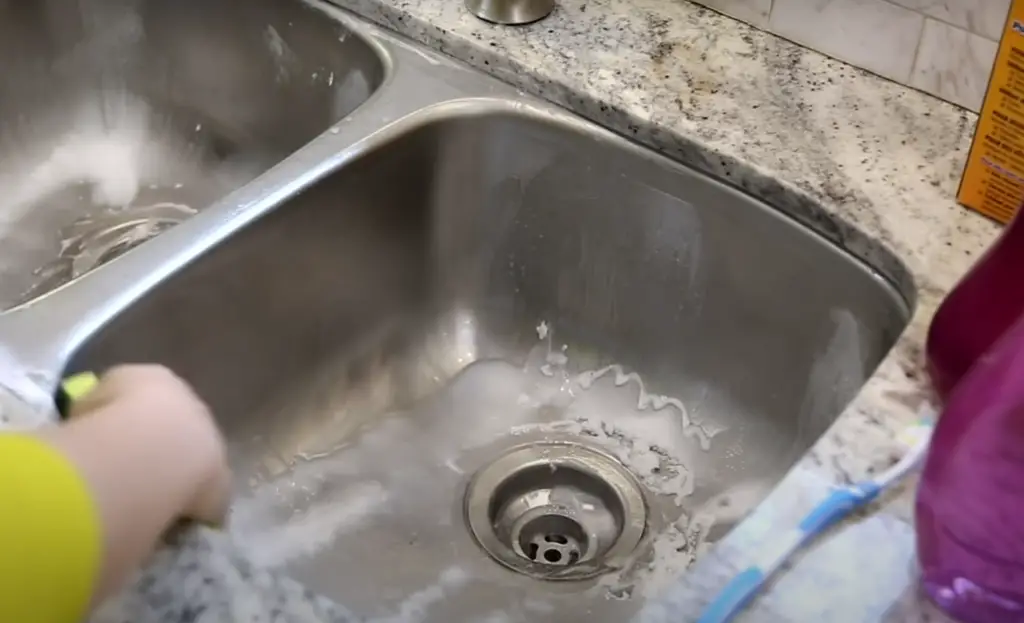
Can I Use a Bathroom Cleaner in the Kitchen?
You can use a bathroom cleaner in the kitchen, but it depends on the product. However, before you do so it’s important to consider some other factors.
First and foremost, make sure that the particular brand of bathroom cleaner you’re using is safe for kitchen surfaces. Not all cleaners are created equal, and some may contain ingredients or chemicals that could be hazardous when used on food preparation surfaces. If a product isn’t specifically stated as being safe for kitchen countertops or sinks, it’s best to look for an alternative cleaning solution.
Also, consider the type of surface. Some materials like granite or marble may react poorly to certain chemical agents. It’s always best to do a spot test on a small area of the surface first.
Finally, consider that some bathroom cleaners may have a strong odor or fragrance. If you’re using these products in an area where food is being prepared, the smell could linger and contaminate your meal. Some products are available with “fragrance-free” formulas, so if this is a concern look for one of those.
Be mindful of sensitive surfaces, and if possible opt for a fragrance-free option.
Bathrooms Cleaners Not to Use in Kitchens
Though you can use bathroom cleaners in some areas of your kitchen, remember that not all of them are suitable for kitchens. Some bathroom cleaners may contain strong and abrasive chemicals that can damage certain kitchen surfaces, like marble or granite countertops. Before using any kind of bathroom cleaner in the kitchen, be sure to read the label and check if it is suitable for the purpose.
If you have to use the bathroom cleaner in the kitchen, be sure to choose a product specifically designed for this purpose. Look for “kitchen-safe” products that are labeled as such on their packaging. These cleaners are usually made with gentler ingredients that won’t damage delicate kitchen surfaces while still providing effective cleaning power. Additionally, they often feature antibacterial agents like tea tree oil or eucalyptus oil which can help keep germs away from food preparation areas. [1]
Always follow the directions on the label carefully and use safety gear like rubber gloves and protective eyewear as needed. Also, be sure to rinse the surface thoroughly with clean water after using any kind of bathroom cleaner and wipe it completely dry. This will prevent any residue from the cleaner from remaining on the kitchen surfaces and lingering in the air.
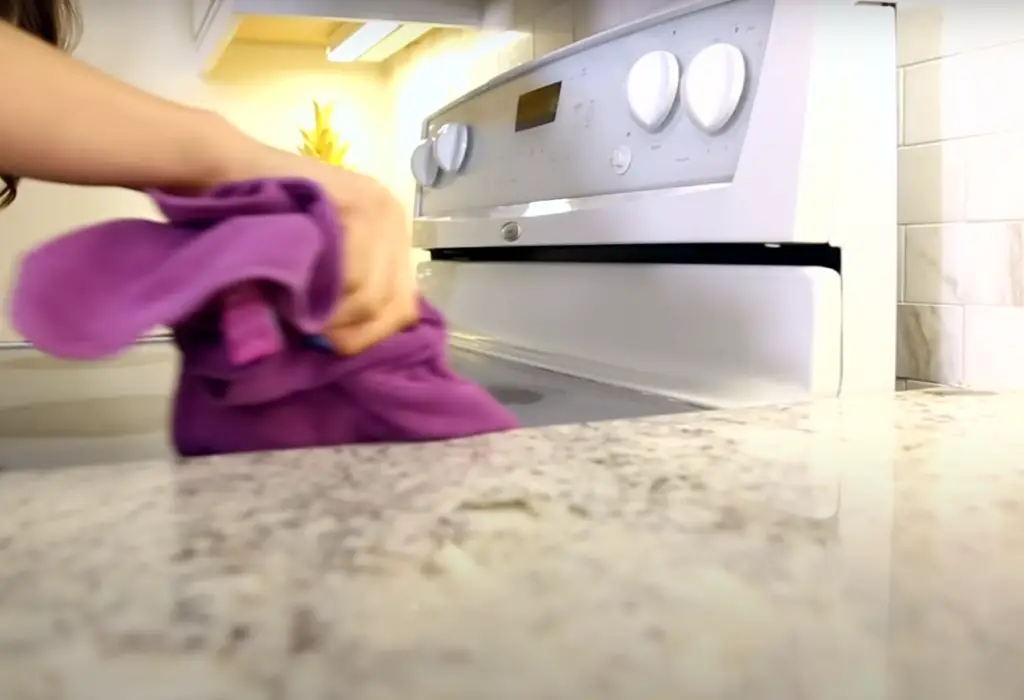
Chemicals in Home Cleaning Products
Many bathroom cleaners contain ammonia, bleach, lye and other potentially harsh chemicals that can be dangerous when used in the kitchen. Bleach is particularly corrosive and should not be used in the kitchen at all. Ammonia and lye are caustic and should also be avoided. The fumes from these ingredients can be toxic to breathe, so it’s best to stay away from them altogether.
Some products are designed specifically for bathrooms, while others can be used in multiple rooms. Be sure to follow all safety instructions and never mix different types of cleaners together as this can create potentially dangerous chemical reactions.
It’s also important to make sure that any surfaces treated with a bathroom cleaner are thoroughly rinsed off before food preparation begins again. Any residue from the cleaning product could remain on the surface and transfer onto food, so taking extra precautions is always a good idea.
Safe Bathroom and Kitchen Cleaning Products
When it comes to deciding which cleaning product to use in your bathroom and kitchen, safety should always be a priority. Most bathroom cleaners are designed for use on hard surfaces like tile, porcelain, and other non-porous materials. While these can be safely used in the kitchen, you need to pay special attention when using them around food or food contact surfaces. To keep everyone safe from potential contamination, follow these guidelines:
- Use one cleaner for each area of the house — bathroom cleaner for the bathroom and kitchen cleaner for the kitchen;
- Choose an EPA-registered disinfectant (or multi-surface cleaner) that is labeled as being effective against specific pathogens (such as salmonella or E. coli);
- Always check labels to make sure the product is safe for use on food contact surfaces;
- Wear gloves when cleaning and avoid getting any cleaner on your skin;
- Clean thoroughly with a damp cloth or sponge before using a chemical cleaner, and rinse well afterward;
- Change sponges often and always keep them dry between uses. Avoid using the same sponge more than once without washing it;
- Use disinfectants in a well-ventilated area and never mix them with other cleaners or chemicals, as this could create dangerous fumes;
- Always store products out of reach of children and pets, away from heat or flames, and in their original containers with securely closed lids;
Cleaning the Kitchen Safely
When it comes to cleaning the kitchen, safety should always be your number one concern. Even though bathroom cleaner may be safe for use in the bathroom, it is not necessarily suitable for all areas of your home. In order to keep your family and yourself safe, you must take extra precautions when using products in different rooms of the house.
Before using any product on a surface in the kitchen, it’s important to read the label and check that it is specifically formulated for use on kitchen surfaces such as countertops, floors or appliances. If you’re unsure about a product’s suitability, contact the manufacturer first before proceeding with its use. Many manufacturers provide detailed instructions as well as warnings about specific ingredients that may harm different types of surfaces.
When it comes to using the bathroom cleaner in the kitchen, always follow the directions on the label. You should also wear protective gloves and a mask when handling potentially hazardous or strong-smelling chemicals found in many bathroom cleaners.
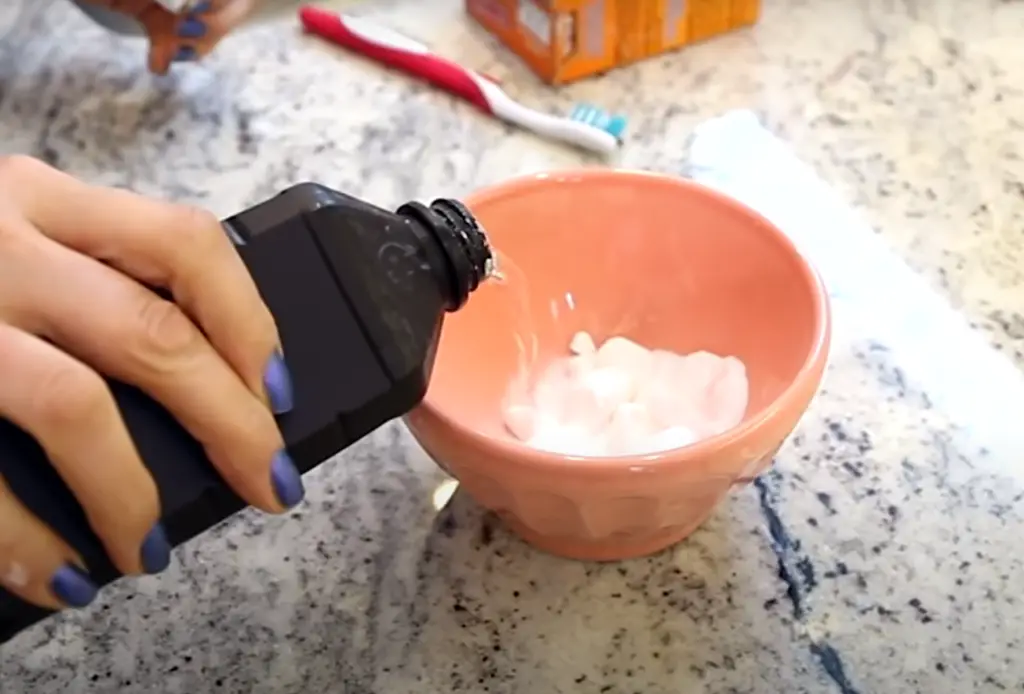
Finally, make sure you rinse any surface thoroughly after the application of any cleaning product. This is especially important in the kitchen, where food could be contaminated by harsh chemicals.
By following these safety tips, you can ensure that your kitchen is clean and safe for your family to enjoy. While bathroom cleaners may be suitable for some uses in the kitchen, always read labels carefully before use and take extra caution when handling strong-smelling or hazardous chemicals. If you’re ever unsure about how to clean a surface safely, contact a professional for help.
Are Kitchen Cleaners & Bathroom Cleaners The Same?
No, kitchen and bathroom cleaners are not the same. While kitchen cleaners usually have a milder scent and gentler ingredients, bathroom cleaners have stronger cleaning agents and a more pungent odor. When using the bathroom cleaner in the kitchen, it’s important to remember that you may be left with an unpleasant smell if you don’t rinse the surface properly after use. Additionally, bathroom cleaners can leave behind streaks or residues that could damage your cookware and countertops unless they’re properly cleaned off afterward.
Using Bathroom Cleaner On Other Surfaces
Using a bathroom cleaner in the kitchen is a great way to keep your surfaces looking their best. But it’s important to remember that this type of cleaner should never be used on food-prep and dining surfaces. That’s because it’s much too harsh for these areas, and could actually make them dirtier!
However, you can use bathroom cleaner on other surfaces throughout your kitchen. For example, if you have tile countertops or backsplashes, you can safely use a bathroom cleaner on them. Just make sure to rinse the area thoroughly after cleaning and dry it with a clean towel. You may also want to test the cleaner in an inconspicuous spot first just to make sure there are no adverse reactions. [2]
If you have other types of surfaces in your kitchen, such as stainless steel or laminate countertops, it’s best to use a cleaner specifically designed for that surface. This will ensure that the cleaner won’t damage or discolor the material.
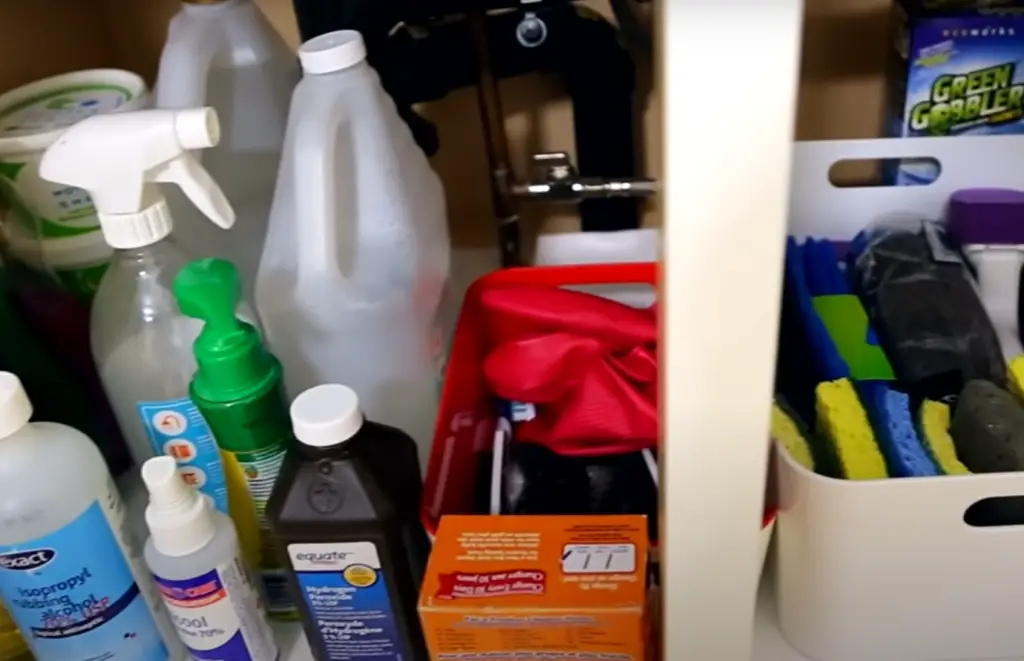
FAQ
Can you use the bathroom cleaner in the kitchen?
Technically yes, but we wouldn’t recommend it! Bathroom cleaners are usually harsher than kitchen cleaners and can damage the surfaces in your kitchen. You’ll want to use a cleaner designed specifically for the material that you’re cleaning, such as wood, tile, or stainless steel. These specialty cleaners will be gentler on your surfaces and more effective at removing dirt and grime.
It’s always best to use products that are designed for the specific area of your home. For the kitchen, this means cleaners designed specifically for kitchen surfaces and appliances. This will ensure that you can clean effectively while protecting your surfaces from damage.
Can you use a bathroom cleaner on other surfaces?
Yes, you can use a bathroom cleaner on other surfaces as long as they are non-porous. However, you should always read the directions on the product label before using it and make sure that it is suitable for use on the surface in question. It’s also important to note that some bathroom cleaners contain harsh chemicals that could damage certain materials, so be sure to do a patch test before applying it liberally. Additionally, many household cleaners can be used for multiple purposes and some manufacturers even offer multi-surface cleaning products specifically designed for use on different surfaces around your home. When in doubt, ask an expert or check out reviews online to find out what is safe to use with your particular surface material. [4]
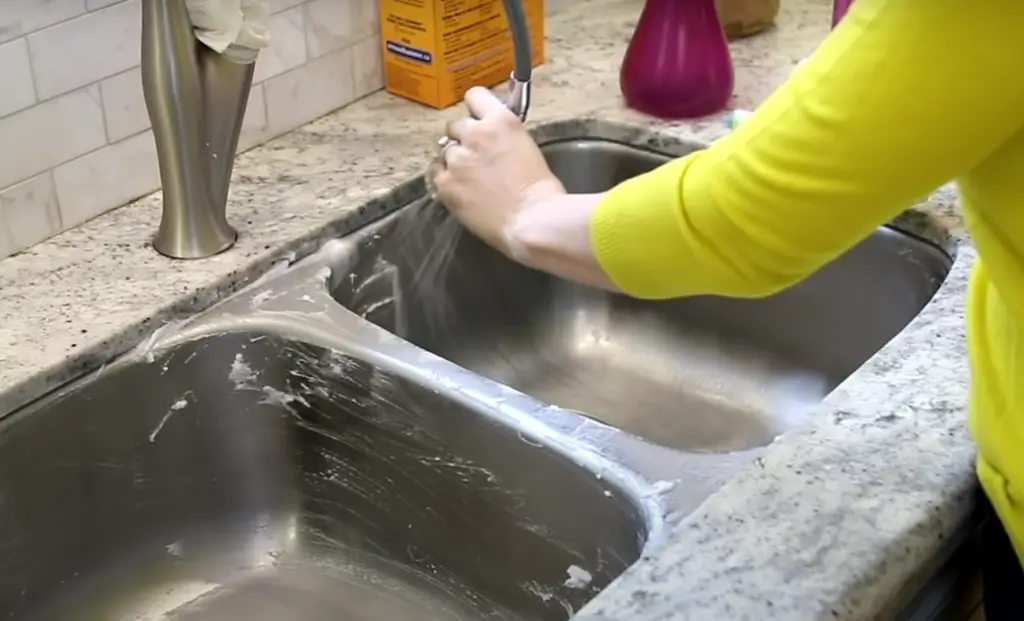
While we suggest only using bathroom cleaners on non-porous surfaces, it’s important to keep in mind that some products are designed for use in kitchens and bathrooms and can be used safely on both. Just make sure you read the label carefully before use and follow all safety instructions. Finally, remember to always wear protective gear such as gloves, goggles, and a face mask when using any type of cleaning product. This will help ensure your safety while also helping you get the maximum benefit from your cleaner of choice.
Can I use the bathroom cleaner on the stove?
It depends, it’s important to take a few extra steps. First, make sure that the product is safe for use on stainless steel or other materials found in your kitchen. Second, clean off any residue from previous cleaners and scrub away any cooked-on messes with a little dish soap and water. Finally, spray the bathroom cleaner directly onto the surface of the stove and let it sit for about 10 minutes before wiping it away with a damp cloth. This will ensure that all germs and bacteria are killed off without leaving any streaks or residue behind.
If you have any doubts about using bathroom cleaner in your kitchen, then you may want to opt for a milder cleaning solution like baking soda or vinegar instead. Either way, just be sure to follow the instructions for your chosen product and wear protective gloves when cleaning with any chemical-based cleaners.
Can you use bathroom cleaner on countertops?
It’s possible to use bathroom cleaner on kitchen countertops, but it’s not the best choice for regular maintenance. Bathroom cleaners are formulated with strong chemicals that can be too harsh and abrasive for some materials commonly used in kitchens, such as marble or granite. A mild all-purpose cleaner is usually a better option. If you do decide to use bathroom cleaner on your counters, test it in an inconspicuous area first and make sure to rinse thoroughly afterward. Never mix different cleaning products together! This could create toxic fumes that can be very dangerous. [5]
Useful Video: 16 Kitchen Cleaning Tips!
Conclusion
At the end of the day, whether you can use the bathroom cleaner in the kitchen is your decision. If you’re looking for a safe and effective way to clean and disinfect surfaces, it’s best to stick with products that are specifically designed for kitchens. However, if you don’t have access to these products or just prefer to use what you already have on hand, using a bathroom cleaner in the kitchen can be an option – as long as you take safety precautions such as diluting it appropriately and avoiding contact with food preparation surfaces. Ultimately, only you know what’s best for your own kitchen. So do some research, assess your needs and make an informed choice! Happy cleaning!
References:
- https://roomimpact.com/can-i-use-bathroom-cleaner-in-the-kitchen-use-the-right-cleaner-for-the-right-place/
- https://missvickie.com/can-i-use-bathroom-cleaner-in-the-kitchen/
- https://homepander.com/can-you-use-bathroom-cleaner-on-kitchen-countertops/
- https://kitchenbedandbath.com/can-you-use-toilet-cleaner-in-the-shower/
- https://www.quora.com/Can-Lysol-toilet-bowl-cleaner-be-used-on-counters

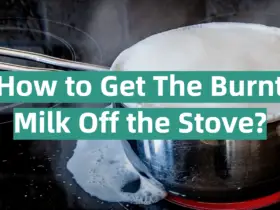

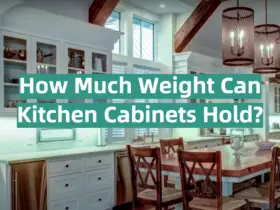

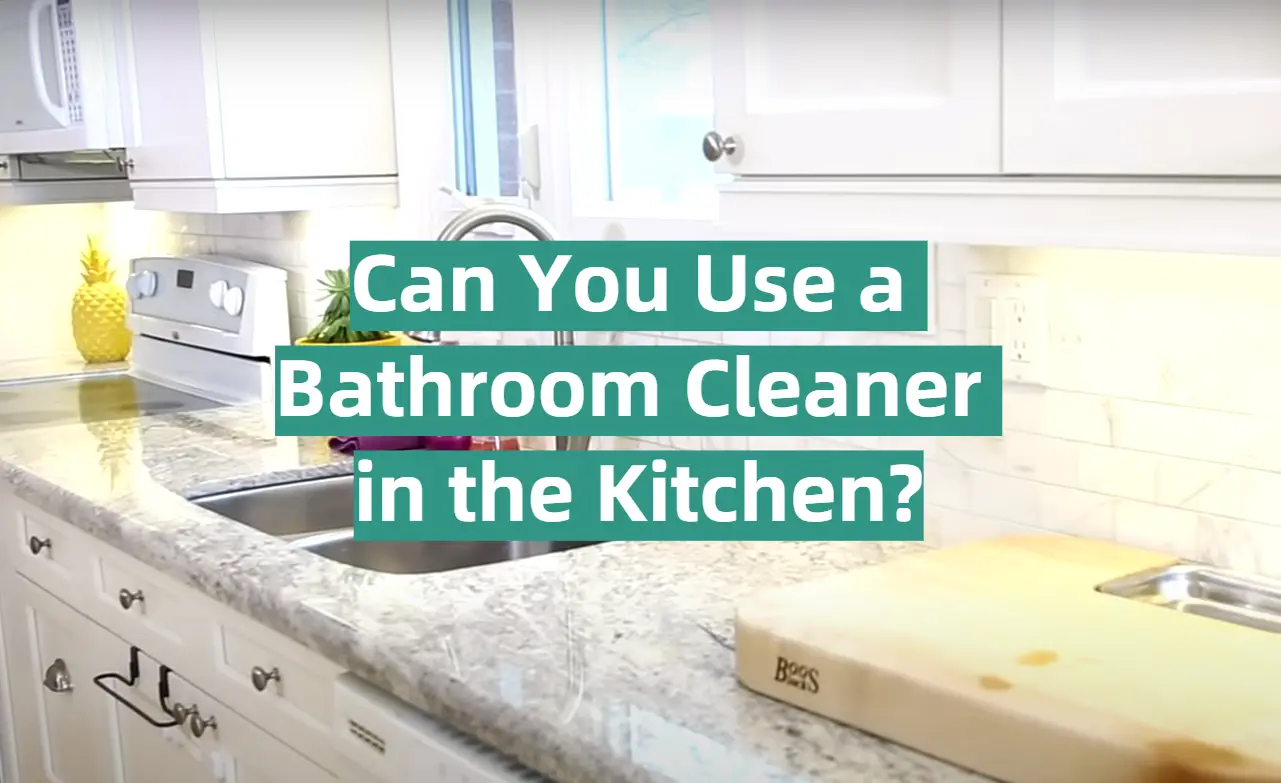
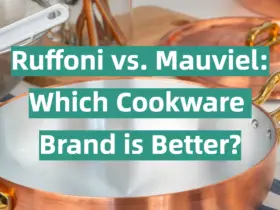
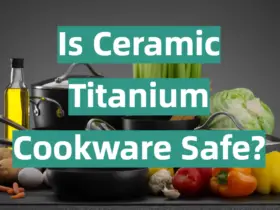
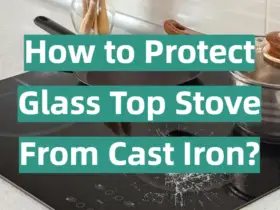

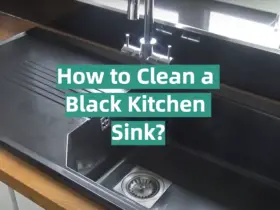
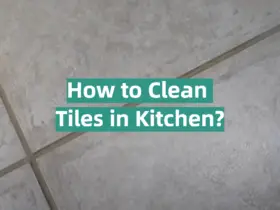

Leave a Reply